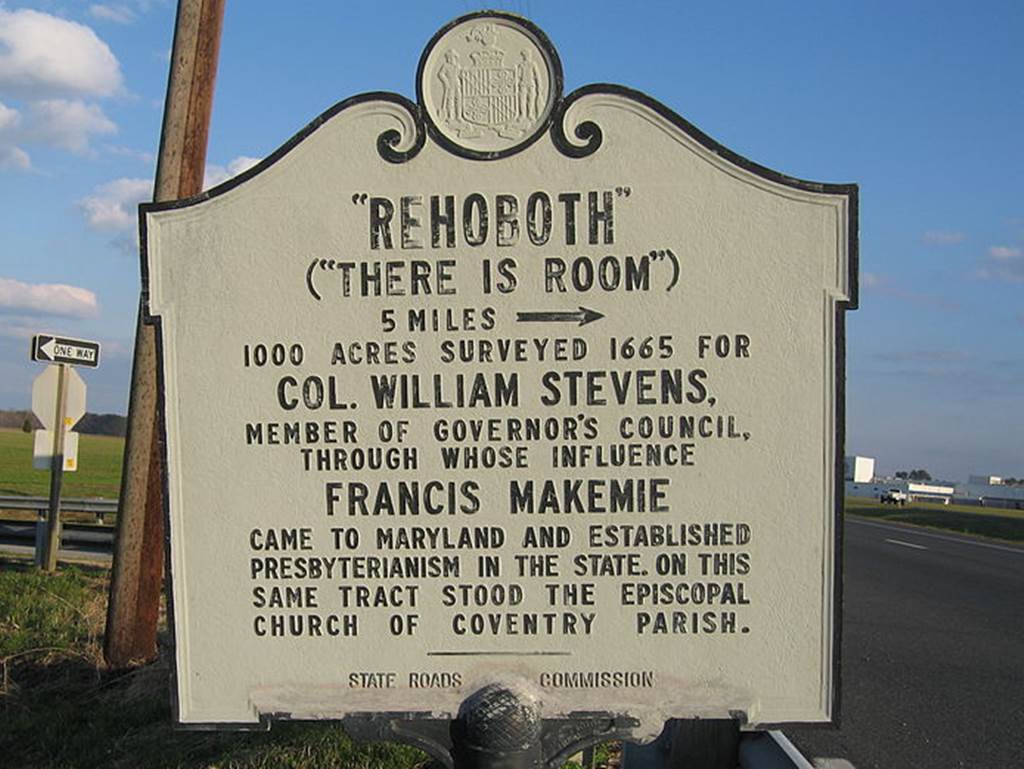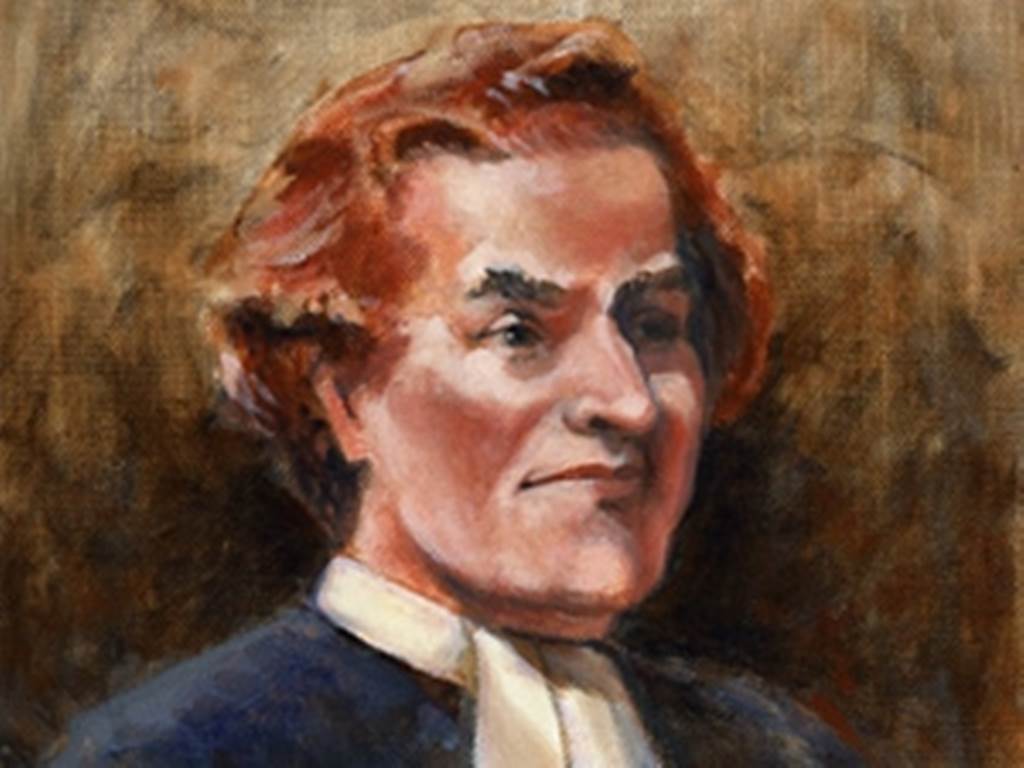Francis Makemie
Born in Ramelton or Rathmullan in County Donegal, Ireland in 1658, Francis Makemie is considered to be the father of American Presbyterianism. In February 1676, he began a course of study at the University of Glasgow and was ordained by the Lagan Presbytery in 1682 at the request for missionaries by Colonel William Stevens from Rehoboth, Maryland. Francis came to the New World colonies of America and traveled around North Carolina, Maryland, Virigina, and New England.
Francis Makemie founded four Presbyterian congregations in 1683: Rehobeth, Snow Hill, Princess Anne (Manokin Church) and Salisbury (Wicomico), Maryland. Makemie was still under the Donegal Lagan Presbytery’s authority when he formed these churches which are believed to be the first Presbyterian establishments in the New World of America.
In 1687, Francis Makemie bought land on the Eastern Shore of Virginia in Accomack Count. He engaged in shipping and trade to make a living, while traveling to the small congregations of Presbyterians. William Anderson, a successfull businessman and landowner, helped Makemie become established. Francis married Anderson’s daughter, Naomi, around 1685. They had two daughters, Anne (circa 1697) and Elizabeth (circa 1700). Elizabeth died before her father, while Anne outlived him and was married three times.
In late Fall 1696 and early 1697, Makemie was in Barbadoes preaching.
On October 5, 1699, Makemie appeared in court at Accomac County to request a license to preach and hold religious meetings in Virginia as a Presbyterian at his houses in Pocomoke and Onancock. Previously, he had preached and organized churches in Maryland and Delaware, as well as holding services in Virginia. The official church in Virginia was the (Episcopal) Church of England. Passage of the Act of Toleration by the English Parliament in 1689 gave new rights to religious dissenters, allowing them to register their meeting houses and license their ministers to preach. In 1699, Makemie got the Virginia legislature to accord similar freedom in the Commonwealth. The court gave him a license on October 15, 1699.
In 1706, Makemie helped bring together Presbyterians ministers and elders to establish the Presbytery of Philadelphia. This was the official birth of American Presbyterianism. Makemie was elected the first moderator of the Presbytery.

Francis Makemie, Rehoboth
While traveling in January 1707, Makemie was arrested by Lord Cornbury (aka Edward Hyde), the Colonial Governor of New York, for preaching without a license. Though Anglicanism was the official religion, there were many dissenters who preached different doctrine, including Puritans, Quakers, and Presbyterians on Long Island. Makemie had a license to preach as a dissenter in Virginia, Maryland and Barbadoes. After spending 6 weeks in jail, Makemie was aquitted in June 1707. His defense was based on the English Toleration Act of 1689. Though he was found innocent, he was ordered to pay the very expensive cost of his prosecution. This case is considered a landmark case in favor of religious freedom in America. It caused the New York legislature to enact legislation to prevent such prosecution again in the future.
Francis died in the Summer of 1708. He was buried on his farm on the Eastern shore.



